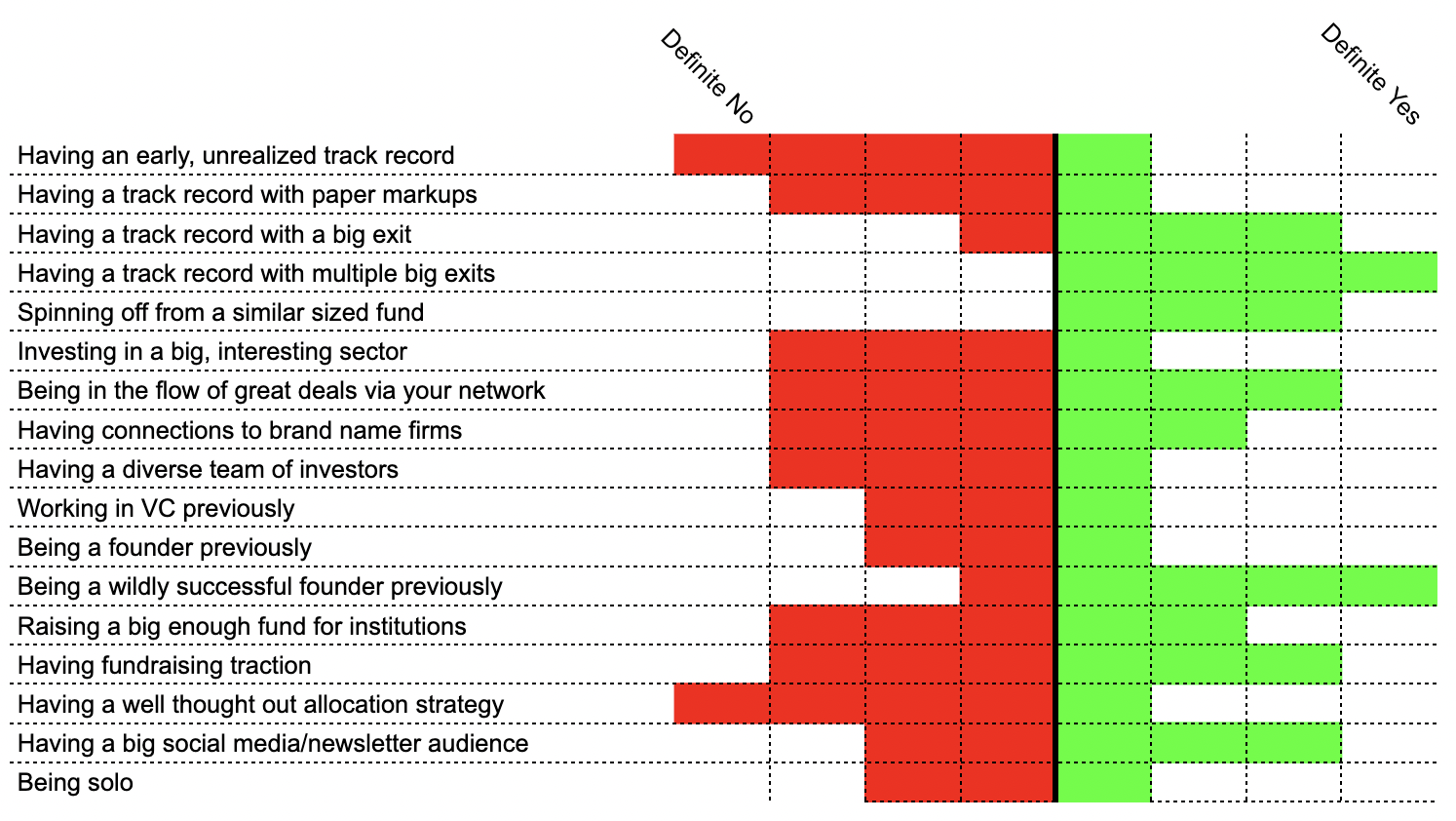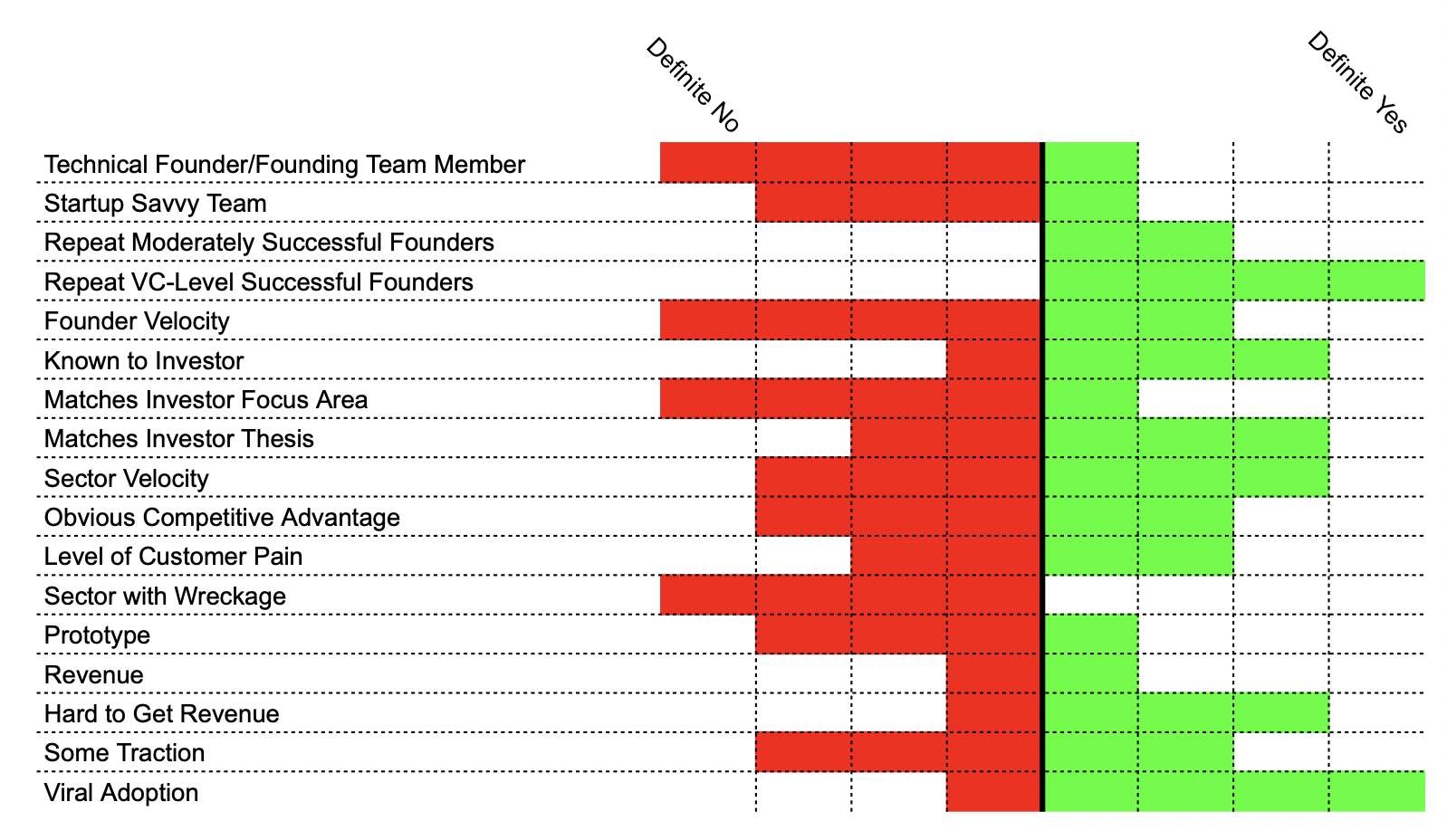When the Music’s Over: Founder Life Immediately After Failure
So Your Startup Failed. Now What?
Statistically, most startups fail.
Mine did.
I started a company in 2007, ran it for two years, and it didn’t work. I was a pretty bad head of product, and we tried to raise money in October 2008 — right as the economy was imploding.
I’ll never forget sitting in a Sand Hill Road office when a VC, staring at a screen full of red tickers, asked if I’d seen what the market was doing. I thought, “No, I don’t have any money. So while it sucks that your $20 million is now $17 million, I’m the one who’s thirty grand in the hole.”
I decided he wasn’t going to be sympathetic enough to make it worth sharing aloud.
Here’s the thing: if you’ve conducted yourself ethically, worked hard, and been transparent with your investors and employees, you’ve built up an asset you probably don’t recognize — admiration. People respect that you tried.
Most never do.
Even if you envy their steady paychecks and zero credit card balances, there’s a decent chance they envy your courage.
Our Venture Unfriendly Immigration Policy
Imagine doing the due diligence in a company whose tech team is in Eastern Europe—Belarus to be specific. It’s a small country with a strong STEM education system that you honestly don’t know that much about. As you do your work, what you hear makes you nervous: a government that concentrates power in one leader, protests that are met with military force, sudden changes in rules that businesses have to scramble to follow.
At any moment, your US team visiting the country to collaborate could be picked up off the street for not having the right papers and detained indefinitely. Licenses to operate could be revoked if anyone speaks against the government.
You wonder how anyone could trust building something durable in that environment and decide to pull back your offer.
I’d ask how long before people start to think of the United States that way, but we’re already here.
America, we have to talk
I didn’t like Charlie Kirk or anything he stands for. He and others like him made me angry. If I ever met him and got into a conversation with him, I think there’s a very strong chance I’d want to punch him.
And here’s the tension I’m trying to hold: in a healthy democracy, it’s supposed to be a war of words, not of bullets—and the way you win that war is by showing up where you’re outnumbered and persuading. You can despise the message and still learn from the method. He showed up—especially in hostile rooms—and that often worked, which is exactly what unnerved the left on campuses. The left can and should do that too—without mimicking the content.
Everything you need to know about pitching you can learn from Inception
Everything you need to know about pitching you can learn from the movie Inception—the Leonardo DiCaprio movie about shared dreaming and breaking into someone else’s unconscious.
In Inception, DiCaprio’s character, Cobb, is a professional thief who steals information by infiltrating the subconscious. He is offered a chance to have his criminal history erased as payment for a seemingly impossible task: “inception”, the implantation of another person’s idea into a target’s subconscious.”
Just like Cobb planting an idea in Fischer’s head, your job isn’t to transfer your vision wholesale, but to design a narrative so convincing the investor feels like they dreamt it up themselves.
A pitch deck’s job is to implant a simple, emotional, self-generated belief in the investor’s mind about your future potential.
When it works, they’ll start pitching it back to you in the meeting.
This is not Fine: How to work in Chaotic TImes
Impact and belonging are two things in really short supply these days. Digging down deep into your reserves to do what you can for others--even when it seems like you don't have much to give, might be the biggest source of replenishment and meaning.
What could Siri do for you--if Apple ever got it right?
While we've seen massive advancement in the power of AI tools over the last year or so, we're clearly still just in the early innings of this shift. Reading through the tea leaves of Joanne Stern's interview with Apple software chief Craig Federighi and marketing head Greg Joswiak, I was actually a little hopeful.
It feels like Apple hopes Siri will evolve into a highly reliable and integrated AI companion, deeply embedded across its operating systems rather than functioning as a standalone chatbot. It's something that feels like Apple is uniquely suited to do given continued consumer loyalty to its hardware and operating system. They have unparalleled ecosystem control (iPhone, Watch, AirPods, Mac), on-device intelligence, user trust, and deep OS integration.
The Five "Ups" of Getting Early Stage VC Deal Flow
There’s no single secret to great deal flow—but the best investors treat sourcing like a craft, not a lottery. They combine consistency, curiosity, and community to ensure, not hope, that they’re seeing the best deals.
Tadpoles, Frogs and What You Need for a Series A
A lot of founders ask, “What are the metrics for a Series A?”
“You don’t earn a fundraising round as a reward for the past.”
What you’re doing is selling a ticket to the future—and the thing you’re trying to convince an investor is that you’re a) presenting a vision of the future they want to be a part of and b) you can actually execute on it.
That latter part is where we need to talk about tadpoles and frogs.
Let's Talk About Anxiety, Fear of Failure, and Why I Didn't Go to The Dentist for 27 Years
This week, I got my wisdom teeth out—all four of them.
You might be wondering what took me so long. I’m 45 and most people have them out between the ages of 17 and 25.
One helpful bit of context is that until very recently, I hadn’t been to the dentist since 1998.
Here’s what happened…
Partnership Judo: Don't work against people when vying for a partnership position
Your venture career is better off if you're working alongside the best possible people. The more of them there are that perform up to the kind of level where they have a shot at bringing in a fund-returning deal, the better it is for you.
Remember, when, at best, only about 20% of firms ever make it to a Fund III, there’s more of a chance that your path to partnership is blocked by the death of your firm than by the presence of another investor in your way.
Why Interviewing Others is Awesome for Building Your Brand
In 2015, a then 18-year-old Harry Stebbings launched The Twenty Minute VC from his bedroom in London. No background in venture capital. No industry connections. No podcasting experience. Just a cheap mic, an internet connection, and two things:
Curiosity and initiative.
Instead of waiting for the perfect job, a mentor, or an MBA to unlock those doors, he just started asking questions. Literally.
He cold-emailed VCs and invited them on his podcast.
Not to pitch them. Not to impress them. Just to learn from them.
And here’s the thing: they said yes. Not all of them, obviously—but a few. Guy Kawasaki and Brad Feld were early big names, but why did they bother?
How to Launch Your Startup Without a Launch
Gone are the days of the startup launch party. Remember those nights of trying to explain to a Techcrunch reporter why your app was going to change the world over thumping music and bad venue WiFi?
RIP.
Most startups know not to blow a bunch of money on a big party before they have their first users, but legitimate questions remain about what you do in its place—and how you open yourself up to the world that gets attention.
Founders still want to get press and investors to notice them, but they don’t have a lot of money to work with. What are they supposed to do today?
VCs Don't Owe You a Response or a Follow Up
VCs don’t owe you a goddamn thing—and especially not after they’ve already met with you. That was the time they had for you. They offered a meeting—no more and no less.
The fact that you didn’t spend the last few minutes of the meeting asking for specific feedback and posing the question of whether or not the VC was going to move this forward as a champion of the deal or at least whether they wanted to schedule a next call is your failure. When you’ve got any kind of a lead—be it for selling your product or selling your equity—and you let them go with no scheduled next step, you risk never speaking to them again.
That’s your problem, not theirs.
Fundraising is Biased and Broken. It Also Works Pretty Well and Isn't Going to Change
Everything you’ve heard about fundraising—all the worst things about it—are largely true.
Yes, straight white dudes get most of the money.
Yes, biased straight white does dole out most of the money.
Yes, many of these founders are pitching dumb stuff that gets funded all the time—especially by people they know.
Yes, someone else in the Silicon Valley insiders club got way more money than you for basically the same idea, even though you were first.
All true.
Here’s the other truth: The venture fundraising process actually does a pretty good job of distributing capital to the founders with the best chance of creating big financial outcomes.
The Nicest Place on the Internet
There aren’t a lot of places you can go online that genuinely make you feel good—and that bring out the best in you…
…especially in an election year.
That’s why when you’re in a social network for over a decade and you’ve never ever seen a negative post, gotten into an argument, or never felt worse about yourself for the time you spent on it, it really stands out.
What I Learned Coaching VCs for the Last Year and What’s Next
About a year ago, I asked why more VCs aren’t using coaches.
Given the uncertain career paths for VCs, the unique dynamics around partner promotion within and across firms, and lack of clear direction on how to best spend your time on a day to day basis, it felt like investors would benefit from talking to someone who could provide some guidance.
After all, it’s something they recommend founders do.
What followed was a stampede of newly minted associates, ambitious principals aiming for partnership positions, emerging GPs navigating their firms through fundraising, and even a few experienced partners looking to optimize their time in order to compete with up and comers.
I honestly wasn’t prepared to handle the interest—and it didn’t stop. Every week, new VCs inquired about coaching even though I had barely put it out there. I wasn’t intending on making coaching my main activity, but I found it incredibly rewarding.
I coached investors to promotions, first board seats, internal personnel decisions and even a long overdue resignation.
Here are a few key things I’ve learned...
Thinking About Proximity and Optimization in a Job Search
If you’re in venture capital and you’re trying to make partner somewhere, should you get some operational experience somewhere and then come back? It’s a question my VC coaching clients ask all the time.
Yes! 100%.
You should be like Sarah Tavel. You should source Pinterest while at Bessemer, then “[join] as a "utility player" before we had product managers, and [become] the first PM at Pinterest.”
That will lead you to ultimately become a Partner at Benchmark, one of the top venture capital firms in the entire world.
Easy peasy.
Of course, you just have to find the next Pinterest, which IPO’d for $10 billion, but that’s just a small detail.
The Tech Industry and VC Case for Kamala Harris for President
If the United States is going to continue to solve tough problems with technology, we have to have the ability to collaborate—to work together as a diverse population. That starts at the top, by example.
Kamala Harris represents the best American story we can write—the daughter of two PhD students from different cultures who came here to study. She went on to serve her fellow citizens for decades in the legal system and then in national elected office, keeping people safe and fighting for justice.
She even gets high marks from her husband’s first wife, who considers her a dedicated co-parent and a valued part of her family. This is the kind of person you would co-found a startup with—not a guy who destroys the careers of just about everyone who works alongside him.
The people who simply don’t get paid by Trump comparatively consider themselves lucky.
How to Objectively Measure the "Fundability" of Your Fund
Generally speaking, I think it’s easier to answer the question, “Is this manager going to be sought after to fund the best opportunities in X space/geo/etc?” than it is to try to figure out whether an individual founder will be successful with a particular startup idea. Once you’ve answered that question, you can dive into their ability to sort through their deal flow, do deal selection and the administrative functions of running a fund. Most of the criteria I listed above is all about being someone the very best and highest potential founders want on their cap table—and that’s the most important path to having great returns.
How to Objectively Measure the "Fundability" of Your Startup
The fundraising process sucks for about a million reasons—not the least of which is that investors often lack clarity and transparency in their communication. Still, there is somewhat of a method to their madness. Because feedback is usually given quickly and somewhat dismissively due to the sheer size of the average VCs funnel, founders walk away from the process feeling like VCs didn’t quite understand what they were doing, or they don’t understand the market.
This is some of the worst thinking anyone trying to make a persuasive argument can make—that if you only fully understood me, you would agree with me.
Founders need to shift their thinking to an assumption of understanding—that investors who see thousands of pitches per year probably do understand what a founder is doing the vast majority of the time, and have simply decided that the risk/reward for investing in their company simply isn’t as good of a deal as others they’re currently looking at.
That’s a hard pill to swallow—that perhaps you’re objectively not measuring up compared to other companies. This can be the case at the very same time you’re experiencing bias, microaggressions, and discrimination.



















